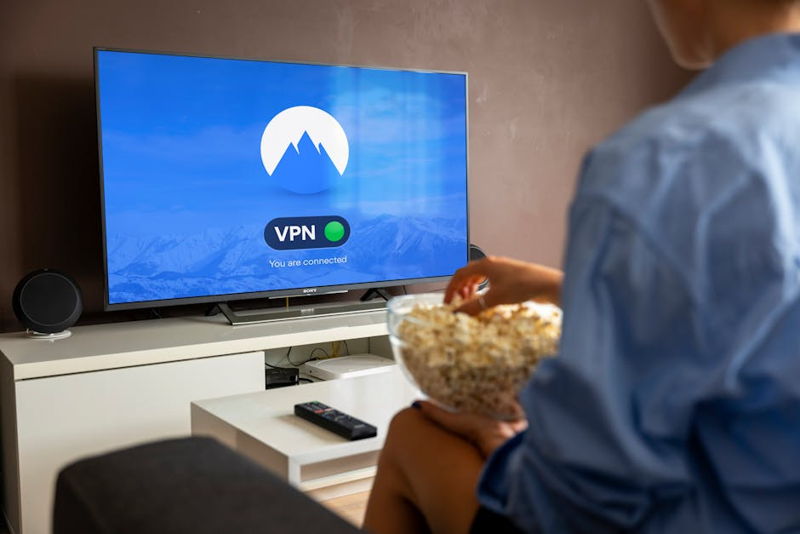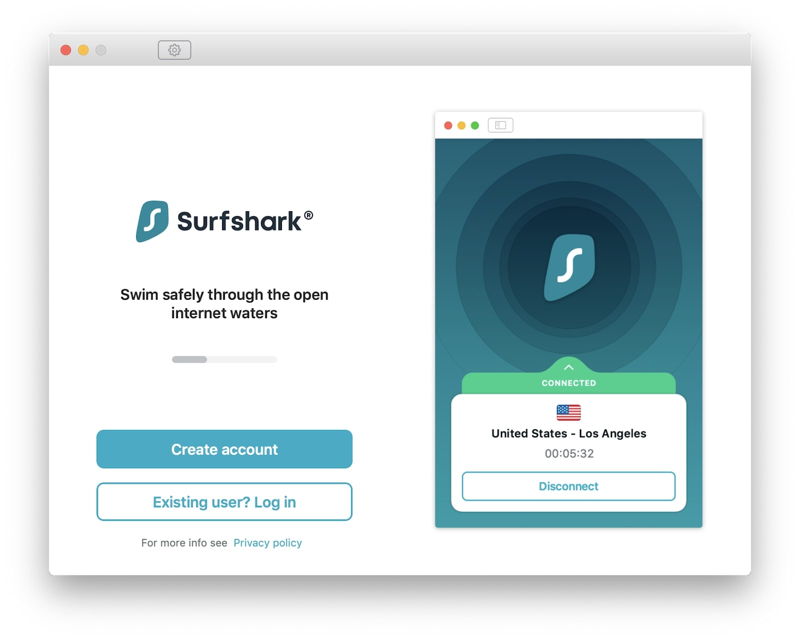Picture this: your personal information gets snatched, traded, or even weaponized against you. Not so far-fetched—just recently, a headline-grabbing breach left millions exposed, raising tough questions about how anyone can stay safe online. So, what is a VPN and what can it do for you? Understanding VPN basics is crucial in today’s digital landscape. Knowing the ins and outs of VPNs is more important than ever. In this guide, we’ll break down their perks, where they fall short, and how they might become your best ally in keeping your data private.
Online privacy, once taken for granted, is now something people fight hard to keep. VPNs have become the go-to shield for anyone serious about their digital security. By the time you finish reading, you’ll know how to pick, install, and use a VPN to keep your online life under wraps. Ready to see how it all works?
Table of Contents
What is a VPN?
A Virtual Private Network—VPN for short—acts like a hidden, encrypted passageway for everything you do online, creating a private network for secure communication. Your data travels through this private channel via a VPN server, which disguises your real IP address and location. No more leaving breadcrumbs for hackers or snoops to follow. Imagine you’re sending a confidential letter: you seal it up and trust only a secure courier, making sure nobody else can break in and peek at the contents.
VPNs first appeared in the 1990s, but they’ve grown up since then. What started as a business tool for remote network connections now helps everyday users guard their privacy, reach blocked sites, and lock down their internet connections. To borrow from Edward Snowden: “Encryption is the answer to the question of how we can protect our privacy in a world where governments and corporations are increasingly seeking to surveil and control us.”

The Origins and Evolution of VPN Technology
VPNs took shape using early methods like encryption and tunneling. A major step was the arrival of the Point-to-Point Tunneling Protocol (PPTP) in the late 1990s. Since then, the technology has moved forward; now, tools like OpenVPN and WireGuard offer stronger security and improved speed.
Today, millions rely on VPNs for privacy and peace of mind. As John Gilmore, a VPN pioneer, put it: “The Internet is a reflection of our society, and it will continue to evolve as we do.” Watching VPNs adapt to new threats and tech proves just that—change never stops.
How Does a VPN Work?
Curious how a VPN does its job? Once you connect, your device sends encrypted data through a tunnel to a VPN server. The server then relays your traffic to its final online destination, making it look like the activity’s coming from the server, not your device. This whole process depends on VPN protocols to keep connections safe and steady.
It’s a bit like mailing a letter: you write it, lock it up in an envelope (encryption), and take it to the post office (VPN server). The post office forwards it, and the receiver never knows where it really came from—just that it passed through official hands.
Encryption Explained
Encryption works by scrambling your data into a code that outsiders can’t crack without the right key. Picture a locked treasure chest; unless you have the code, the contents stay hidden. Encryption methods vary—some use a single shared key, while others use a pair of keys for extra security.
With symmetric encryption, both sender and recipient use the same secret key. Asymmetric encryption ups the stakes: one key locks the data, another unlocks it. That way, only the intended recipient, holding the matching key, can see what’s inside.
Tunneling Protocols Overview
Tunneling protocols lay the groundwork for VPNs, shaping encrypted routes for your data to travel safely. Common protocols include PPTP, L2TP/IPSec, and OpenVPN, each with its own pros and cons. PPTP is simple and quick to set up, though it’s not the most secure choice out there.
OpenVPN, by contrast, means more complicated setup but brings stronger protection and better performance. Picking a protocol boils down to what matters most to you—speed, safety, or hassle-free use.
Key Features of VPN Services
Picking a VPN provider isn’t just about clicking the first name you see. Look at where their servers are based, what encryption protocols they use, and what their data policies reveal. Server location affects speed and what you can access. Encryption protocols like OpenVPN or WireGuard help keep your connection safe. Data-logging policies tell you what, if anything, the company records about your activity.
- A strict no-logging promise means the provider doesn’t store your browsing data, appealing to anyone serious about privacy.
- Features such as a kill switch, split tunneling, or port forwarding can make a huge difference in how flexible or protected you feel.
Common Uses for VPNs
VPNs aren’t just for tech-savvy folks anymore. They’re everyday tools for guarding personal information, unlocking blocked content, and keeping your public Wi-Fi sessions safe. By hiding your IP address, VPNs make tracking you a tough challenge for would-be snoops. Logging onto a coffee shop’s free Wi-Fi? A VPN can keep hackers from prying into your private info.
Plenty of people also use VPNs to reach websites and services unavailable in their country. If you travel or live somewhere with strict internet limits, this can open up a whole new world of content—no passport required.
Protecting Personal Privacy
Keeping your private life private feels harder every year. With a VPN, your IP address and location are hidden, so your internet service provider and others can’t see what you’re up to. All your activity passes through an encrypted server, turning your browsing into a locked mailbox—one only you have the key to.
Think of it this way: you get a private mailbox in a secure building. Send and receive what you like, and no one outside knows your address or the package contents. A VPN does the same for your data, shielding it from prying eyes.
Accessing Restricted Content
Ever tried to stream your favorite show while overseas, only to find it blocked? VPNs can help by rerouting your connection through a server in another region. Suddenly, the site or service thinks you’re a local and grants access.
It’s wise to remember, though, that using VPNs for this purpose may break some providers’ rules. Know the laws where you live, and stick with a provider that respects your rights and doesn’t play fast and loose with your data.
Want a fast, affordable, and reliable VPN?
With Surfshark VPN, you can secure your data, unblock content worldwide, and stay private online—without breaking the bank.
Security Benefits and Limitations
VPNs add key layers of protection by encrypting your traffic, making it tough for hackers or spies to read your data. Still, no tool is perfect. If a VPN server itself gets compromised, your privacy could be at risk.
Other risks include weak encryption or shady data-logging by less trustworthy providers. Stick with companies like NordVPN or ExpressVPN—they’ve built reputations on strong security and keeping customers in the loop about their practices.
Potential Risks and Considerations
It’s not all smooth sailing. Some VPN providers might log your activity or be subject to tough local laws that force them to hand over data. That can be a big red flag if privacy matters to you.
Look for transparency, solid customer support, and strict no-logging policies. It’s worth investing a little time to find a provider that matches your privacy values and has security you can count on.
How to Choose the Right VPN
With so many options, picking a VPN can feel like finding a needle in a haystack. Focus on factors like where the servers are, what encryption is used, and whether your activity will be logged. Reading reviews or visiting comparison sites can help you spot hidden pitfalls or poor service before you commit.
- Try providers with free trials or money-back guarantees so you can see how they perform.
- Check for clear, honest policies and user-friendly setup. That way, you’ll know what you’re getting into—no surprises down the line.
Steps to Set Up and Use a VPN
Getting started with a VPN is usually quick. Choose a provider, like Surfshark VPN for example, sign up, and download their vpn app or software. Follow the on-screen setup instructions; most guides walk you through each step, even if you’re new to this.

Once online, check that your VPN is working by looking for leaks, testing your speed, and making sure your true IP address is hidden. If available, explore features like kill switches or split tunneling to fine-tune your protection and browsing habits.
Frequently Asked Questions
What is a VPN and how does it work?
A VPN, or Virtual Private Network, works by encrypting your internet traffic and routing it through a secure server, hiding your IP address and location from third parties.
Is using a VPN legal?
In most countries, yes, using a VPN is legal. However, laws and regulations can vary, so it’s essential to check the specific laws in your country before using a VPN.
How do I choose the right VPN for my needs?
To choose the right VPN, consider factors such as server location, encryption protocols, data logging policies, and customer support. Look for a VPN that aligns with your privacy values and offers the features you need.
Can I use a VPN to access geo-restricted content?
Yes, VPNs can help you access content that’s restricted in your region by connecting you to a server in a different location. However, be aware that using a VPN to bypass geo-restrictions may violate the terms of service of some providers.
Are all VPNs secure?
No, not all VPNs are secure. Some may have weak encryption, log your activity, or be vulnerable to hacking. It’s crucial to research and choose a reputable VPN provider that prioritizes security and transparency.
Conclusion
VPNs can be a powerful line of defense for your privacy and online safety, offering numerous benefits vpn users can rely on. Knowing how they work—and understanding their limits—puts the control back in your hands. It’s worth remembering: keeping your data safe is a team effort, and a VPN is just one tool in your toolkit.
So, why wait? Find a provider you trust, set things up, and enjoy the peace of mind that comes with smarter, safer browsing. Your privacy deserves nothing less.